Slightly late with this update as I’ve been a bit under the weather (though not with Covid according to my tests!). However, while April hasn’t been all it might have been March was pretty good. Mostly it was a return to authors who’re now old favourites, but there were some new discoveries too.
Ferdinand, the Man with the Kind Heart, Irmgard Keun (translated by Michael Hofmann)
I started with what was sadly my last unread Irmgard Keun. Unusually for Keun this features a male protagonist, Ferdinand, a chancer in a world of chancers. Here we’re in post-war Germany, where everyone’s broke, everyone’s hustling and anyone who was provably a Nazi is doing their best to downplay the fact.
Ferdinand is a sympathetic character, but then this is a sympathetic book. Keun as ever cares about the struggles of ordinary people. She’s a tremendously humane writer, blackly funny but with a sense that she understands what it’s like to be desperate and yet to be hopeful. A tremendous writer and one I’ll revisit.
You can find a bit more about this one at Grant’s, here.

Tell them of Battles, Kings and Elephants, Matthias Enard (translated by Charlotte Mandell)
While I’m linking to Grant, here‘s another he’s reviewed. This is a short novel about Michelangelo, who has travelled to Istanbul to design a bridge. As ever with Enard it’s an exploration of the collision of East and West, or more accurately of the West with the West’s idea of the East. However, unlike his (for me) rather overlong Compass it’s tight and fun and a very enjoyable read.
Here Michelangelo is an undoubted artistic genius, but he’s perhaps less adept at politics, friendship and love. There’s enough incident in its brief 144 pages to fill a miniseries and yet it’s still fizzing with ideas. This is one that might make my end of year list, though competition is already looking fierce…

The Second Body, Daisy Hildyard
This is from Fitzcarraldo’s essays rather than fiction collection. The thesis is essentially that each of us has two bodies – our immediate, physical one and our global one in the sense of the impact we have upon the world. Hildyard explores our relationship with animals before broadening out her thesis to take on wider connections.
I liked the first part of this a lot, where Hildyard works through our ambivalent relationships with the lives around us, but while for me there was consistent interest the theme didn’t quite hold together. That said, the investigation of how we are part of the world, not separate to it as we often imagine, is interesting.

The Laughing Policeman, Sjöwall and Wahlöö (translated by Alan Blair)
My fourth Beck! This one comes with a slightly patronising introduction by Jonathan Franzen which I’d recommend skipping since it rather bizarrely includes a spoiler for later in the series.
Here an unknown killer has machine-gunned a whole busload of people, one of them an off-duty policeman who had no obvious reason to be on the bus in the first place. Cue the usual painstaking police investigation which Sjöwall and Wahlöö are so good at portraying. Nobody makes police work seem like work more than they do. As ever, when Martin Beck and the team reach the end they’ve thoroughly earned it, not by brilliance but by sheer persistence.
At this point I’m committed to the series, but it’s a happy commitment. I plan to start number five shortly.

Sisters of the Forsaken Stars, Lina Rather
I don’t seem to have written up Rather’s first novel, which this is a sequel to. It’s set in a distant spacefaring future in which a convent contained in a living spaceship make their way among the outer colonies who’re in conflict with an overbearing central Earth authority. If you’ve seen Firefly you have the basic concept, but with nuns and a living spaceship which obviously makes it better.
For me this wasn’t quite as strong as the first novel, mostly as the concepts were now familiar, but Rather is good on characterisation and she’s written a great setting. I suspect there’ll be a third in the series and if there is I’ll read it. Fun if you’re an SF fan but not one for those of you who aren’t.

The Hotel, Elizabeth Bowen
One of the fascinating things about middle class holidays in the late nineteenth and early twentieth centuries is how often people seemed to gather in hotels or resorts for lengthy periods, pushed together but with nothing save their class in common. It must have been tremendous for writers.
The eponymous hotel here is in Northern Italy. It’s peopled with English holidaymakers of a certain sort, well-off and leisured but not necessarily best suited to living together harmoniously.
Conflicts here are low key but no less intense for that. Much is unspoken, either between the characters or even by Bowen herself. There’s two implicit lesbian relationships in this book but neither is ever clearly stated and there are many other emotional undercurrents. You have to read between the lines, and slowly too as Bowen’s prose is often a bit opaque, but it definitely repays the effort. This was my first Bowen, but I don’t think it will be my last. Jacqui wrote a typically perceptive review of this one here.

Border, Kapka Kassabova
Finally, a rare trip into nonfiction for me. Kassabova here explores the borders between Bulgaria, Greece and Turkey. She draws on childhood memory, local encounters, myth and (often ugly) history and the result is rich and rewarding.
I had this on Kindle and Audible and mixed reading it with listening to it (I only tend to listen to non-fiction or audiodramas on Audible, with fiction I prefer not to have someone else’s voice determining my reading). It worked well.
Dorian wrote a strong review of this which you can find from here, and Andrew Blackman interestingly wrote a much more critical one here. I’m more with Dorian than Andrew on this one, but Andrew’s arguments do have merit so it’s worth reading both pieces.

And that’s it! Next up April, which I’m still in so you’ll have to wait a little for that.

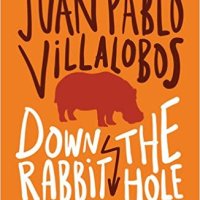

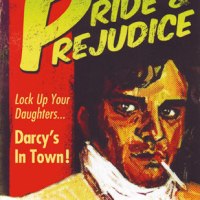
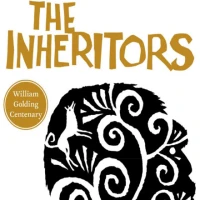
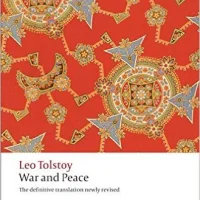

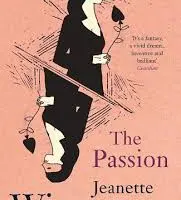


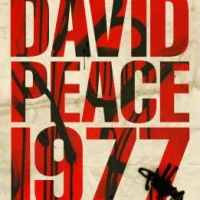



Loved The Hotel. I hope you start feeling better soon. Also I wanted to recommend, The Innocent Party by Celia Dale if you get a chance.
Sorry you’ve been poorly – hope you’re on the mend now. Some nice reads there – and a Keun I haven’t read yet. I like her work so I’ll look this out. The Hotel is indeed a wonderful book – Bowen was such a great writer. As for the Martin Beck books, I love the series – the original and best of the Scandi crime authors as far as I’m concerned.
‘Hotel’ novels, is not a category I’ve ever much thought about, but your definition is perfect: “people seemed to gather in hotels or resorts for lengthy periods, pushed together but with nothing save their class in common”.
I haven’t come across Rather, but these days I prefer women’s SF to men’s because the characterisation is better (and concomitantly, there is generally less shooting).
Oh my, finally, someone else who thought Compass was overlong. I thought I was the only one (and dared not review it). I have Battles, Kings and Elephants somewhere and will give it a go.
I loved all Enard books I have read hope you feel better soon I’m just returning to work after two months off with stress
How happy I am to read from you again, mate. Going back to blogs is something that appeals to me more and more.
Thanks, as always, for the links – two books which I enjoyed tremendously. Like you, Ferdinand was my last Keun in English. Always great to hear about what else you’re reading as it’s so varied! Hope you’re soon feeling better.
Thanks, Max, for linking to my review of the Bowen, very kind of you as ever. I do love a good hotel novel! As you say, they’re a goldmine for interesting fiction. All those disparate personalities rubbing shoulders with one another in a confined environment, it’s bound to create tensions and resentments, especially with this sector of the English class system. If you’re looking to read more Bowen in the future, I would definitely recommend The Death of the Heart (my favourite so far) – and The House in Paris is interesting too, partly for its link to Tessa Hadley’s The Past, though I found it somewhat cold and claustrophobic at times .
The Keun sounds really interesting, and I’m looking forward to seeing how she approaches a novel with a male protagonist. So much of the power of her novellas seems to stem from the striking female voices she creates, so I’m curious to read this one to see how it compares….
The Kassabova sounds fascinating too. Funnily enough, I also listen to some non-fiction via audio, although mostly via R4’s Book of Week programme where the books are filleted to fit the running time. I listened to Kassabova’s To the Lake that way and really enjoyed it. A fascinating book – in a broadly similar vein to Border, by the sound of things, so I’ll keep that in mind for the future.
Hi all,
Mostly better, though it’s been a surprisingly long haul for basically a bad cold. I do wonder if my immune system’s having to fire back up again after a couple of years of minimal contact.
I’ll look out for the Dale, I’ve saved the review at yours Guy.
Kaggsy, Keun is great. I’d recommend any of hers to be honest. I’ve read another Beck since – I’m now planning to try to read about one a month. At this point I’m just accepting that they’re a bit dated on the sexual front (do the female characters’ nipples really need describing?) but they’re so good on many other fronts that I just put up with that bit.
Wadholloway, any other female SF recommends? I know the obvious ones – Octavia Butler and more recently Ann Leckie, plus I’m quite fond of Anne Charnock’s work, but definitely open to suggestions.
RG, far too long. It’s the only Enard I’ve not kept. You’re not alone!
Stu, Egard is a talent there’s no doubt about that. I hope the return to work goes well for you.
Ramón! Lovely to hear from you! We’re just starting to travel again and it would be great to see you out there or over here.
Grant, shame there’s no more Keuns to read isn’t it? I can see myself returning to her though in future.
Jacqui, I have Bowen’s A World of Love (which nobody seems to recommend I note) so I’ll probably read that before getting others. House I’ll read for the connection to Hadley even if it’s not her best.
To the Lake does sound similar and I plan to read that in a bit. Kassabova is a very interesting writer.
The most recent women’s SF writer I’ve read is new-to-me Nalo Hopkinson, who is explosively brilliant. Also recommend Indigenous Australian Claire G Coleman.
(Bill Holloway, blogging at The Australian Legend)
Those are both totally new to me. Thanks!
Pingback: May 2022 roundup | Pechorin's Journal
Pingback: Ferdinand, the Man with the Kind Heart (tr. Michael Hofmann) | JacquiWine's Journal